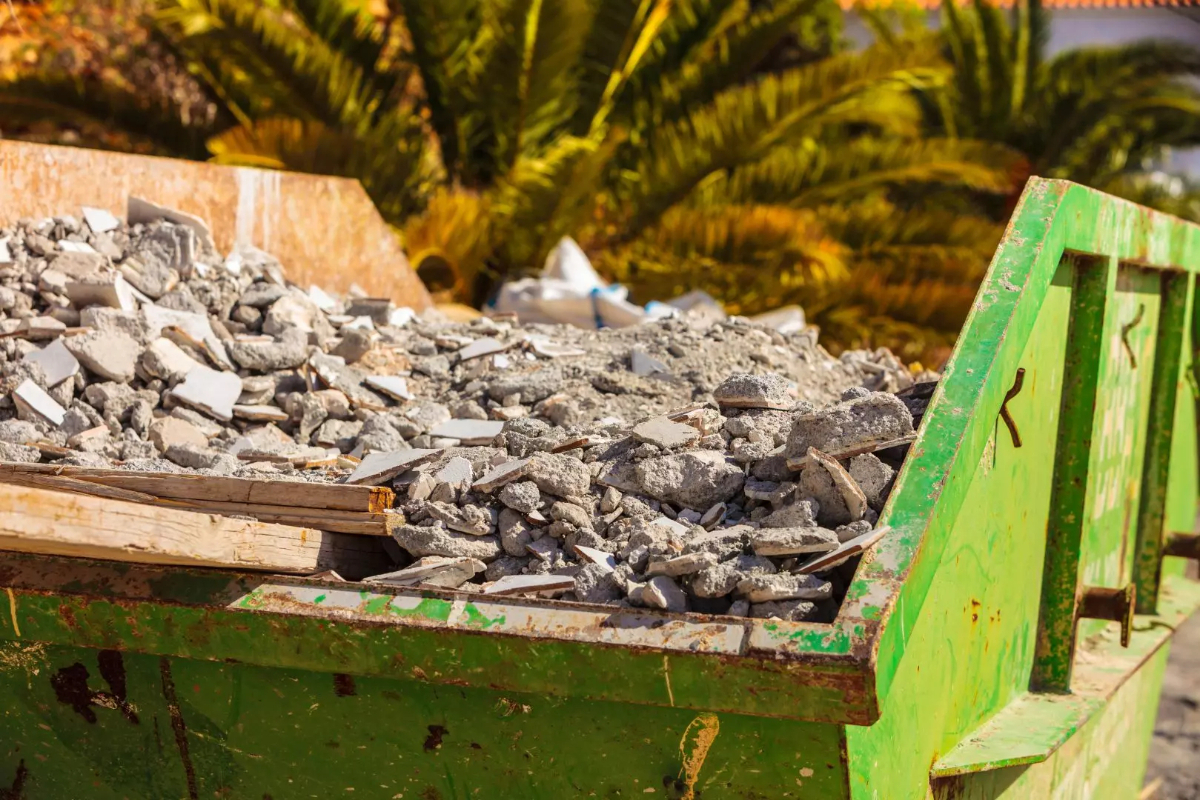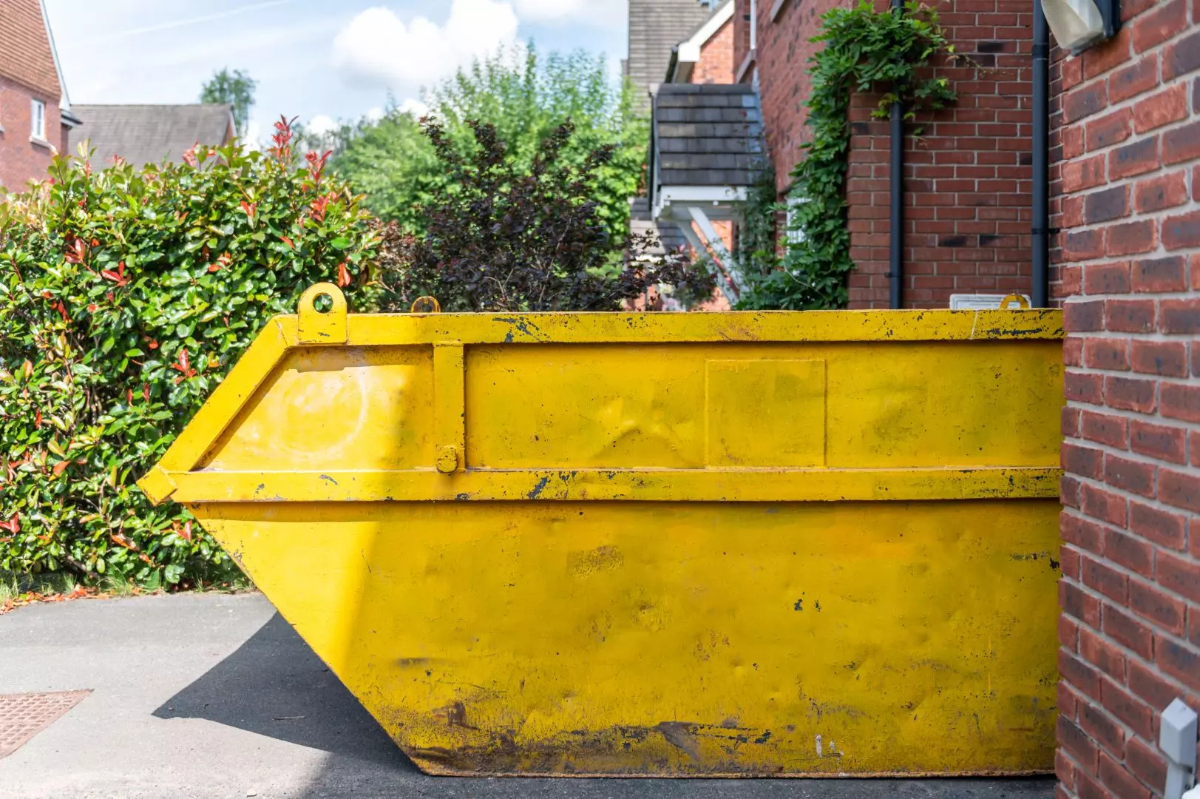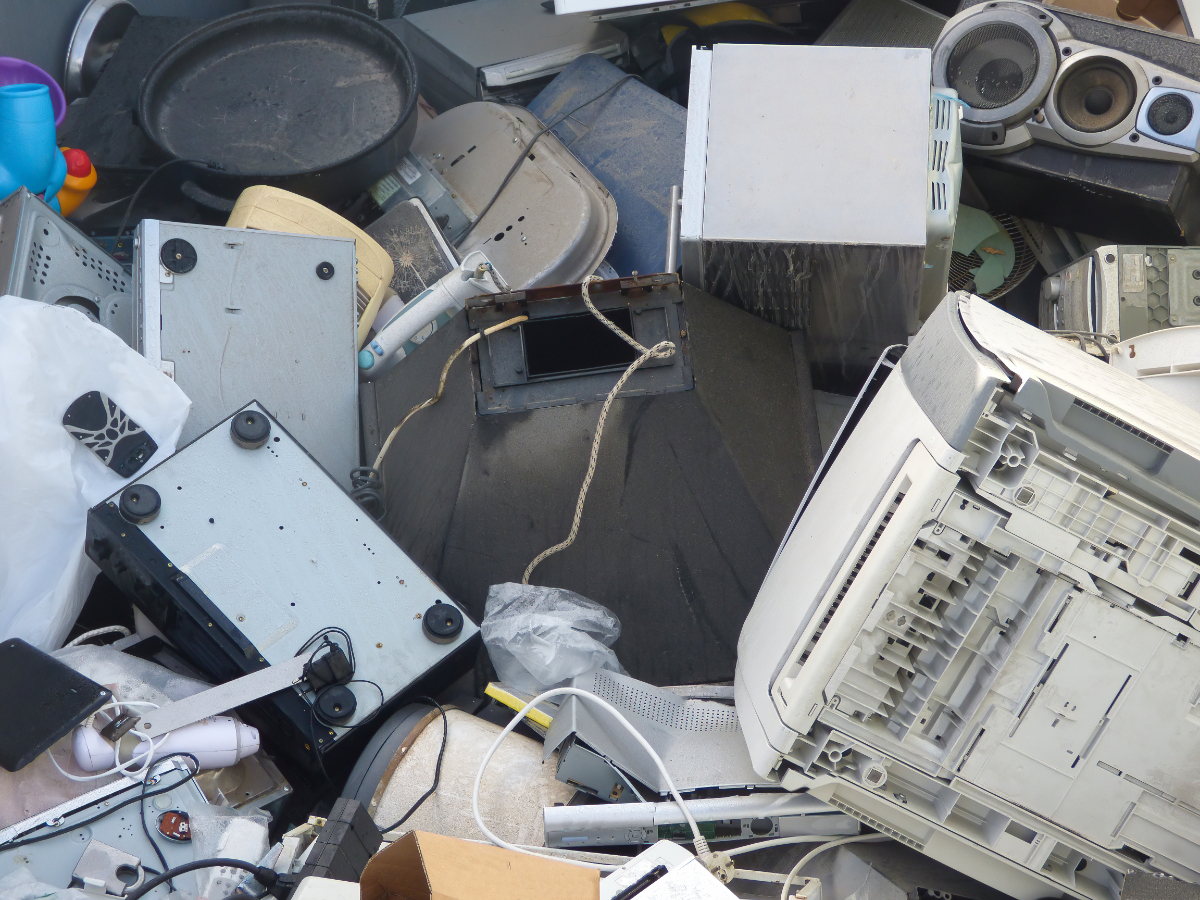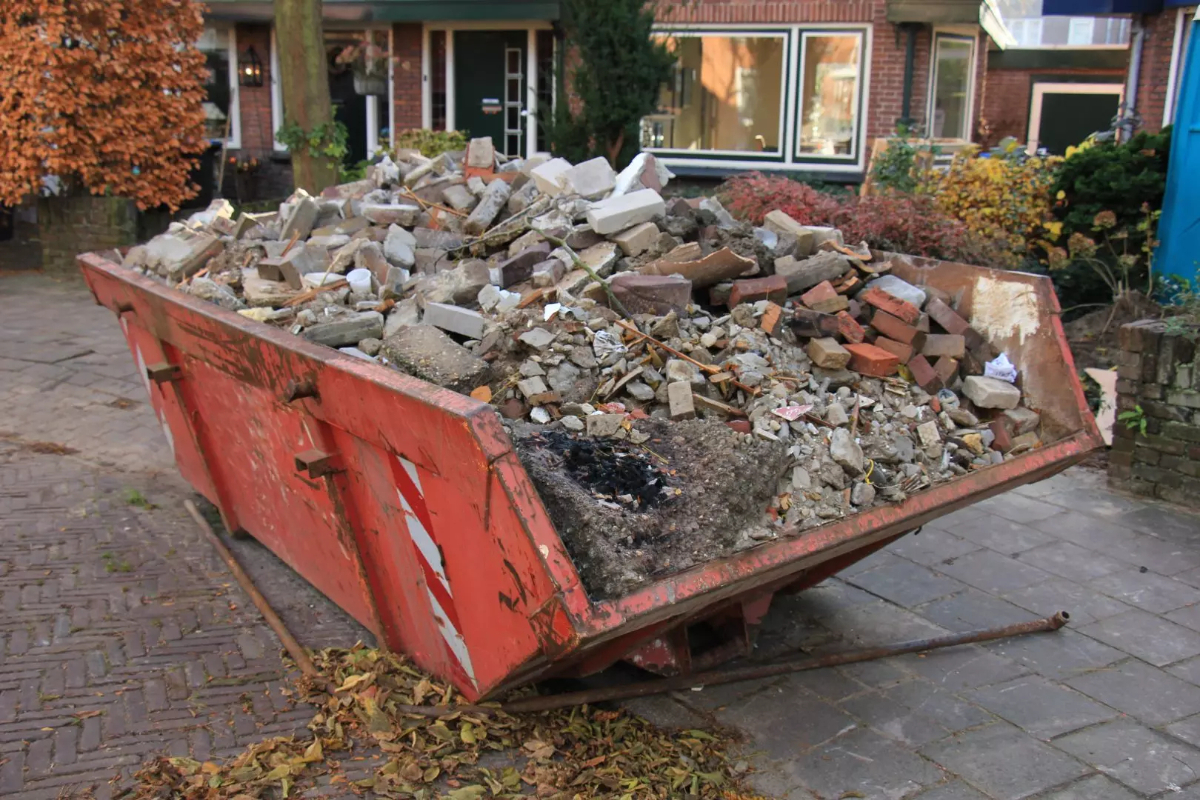If you have household or business waste to dispose of you may be considering skip hire. This mini guide to skip hire will help you find the right skip size for you.
What Can You Put In A Skip?
When considering skip hire, understanding what can and cannot be placed in a skip is paramount for a hassle-free waste disposal experience. A variety of items can be safely discarded in a skip, making it a convenient solution for numerous projects. Common items suitable for skip disposal include general household waste, such as old furniture, non-hazardous construction debris like wood and plaster, garden waste, and even appliances.
Additionally, inert materials like soil, concrete, and bricks are typically accepted. These items can be combined to make the most of skip space, simplifying your waste disposal efforts.
However, it's essential to exercise caution and adhere to guidelines. Asbestos, hazardous chemicals, electrical equipment, and medical waste are among the items that should never be placed in a skip due to potential harm to the environment and public safety. Ensuring proper waste segregation and following local regulations ensures responsible waste disposal.
A skip provides a convenient solution for disposing of various items, from household waste to construction debris. By familiarising yourself with what's permissible and adopting responsible waste management practices, you can make the most of your skip-hire experience while contributing to a cleaner environment.
How Much Does Skip Hire Cost?
When embarking on a waste disposal project, understanding the cost of skip-hire is a crucial consideration. The cost varies depending on several factors, and having a clear understanding of what influences pricing can help you make an informed decision that aligns with your budget and needs.
The cost of skip hire is influenced by skip size, location, rental duration, and the type of waste being disposed of. Larger skips typically come with a higher price tag, reflecting their greater capacity
The location also plays a role; skip hire costs can vary between regions due to factors such as disposal fees and transportation distances.
Rental duration is another key factor. Most skip-hire companies offer flexible rental periods, from a few days to a couple of weeks. Extending the rental period beyond the initial agreement may incur additional charges, so it's essential to plan your project timeline carefully.

The type of waste being disposed of can impact costs as well. General mixed waste disposal is usually less expensive than disposing of specific waste categories, such as hazardous materials or electronic waste, which require specialised handling and processing.
Additional costs to consider include any necessary permits. Placing a skip on public property, like a road or pavement, often requires a permit, which comes with its own fees. It's crucial to inquire about permit requirements and costs from your local council or skip-hire provider. To get an accurate cost estimate, it's recommended to obtain quotes from multiple skip-hire companies. This allows you to compare prices, services, and terms, ensuring that you're getting the best value for your money.
The cost of skip hire can vary based on skip size, location, rental duration, and the type of waste. By assessing these factors, obtaining multiple quotes, and understanding any additional charges like permits, you can confidently choose a skip-hire option that aligns with your budget and waste disposal requirements.
What Skip Size Do I Need?
Selecting the right skip size is pivotal to a successful waste disposal project. The appropriate skip size ensures efficient waste management and prevents unnecessary costs. To determine the ideal skip size, consider the scope of your project and the volume of waste you expect to generate. For small tasks like decluttering a room or minor garden clean-ups, a 2 or 4-yard skip might suffice. These sizes are space-efficient and suitable for limited waste quantities.
For medium-sized projects like bathroom renovations or clearing out a garage, a 6-yard skip offers a practical solution. If you're tackling larger renovations, substantial garden clearances, or minor construction work, an 8-yard skip is a versatile choice that accommodates moderate amounts of waste. For extensive renovations, larger construction sites, or commercial endeavours, a 10-yard skip provides the capacity needed to manage substantial waste volumes.
To avoid overestimating or underestimating your needs, assess the type and quantity of waste you'll be disposing of. Overloading a skip is hazardous and may incur extra charges. It's also essential to consider the available space for skip placement and any necessary permits if the skip will be located on public property. Selecting the right skip size hinges on evaluating your project's scale and waste output. By matching the skip size to your requirements, you can streamline waste disposal, ensure efficient operations, and optimise cost-effectiveness for a successful waste management endeavour.
What Is A Skip Permit?
A skip permit, also known as a skip license, is an authorisation granted by the local council that allows you to place a skip on public property, such as a road or pavement.
This permit is essential when the skip cannot be situated entirely on private land. The purpose of a skip permit is to ensure the safety and compliance of skip placement in public areas.
It prevents obstruction of traffic, damage to public property, and potential hazards for pedestrians. The process involves submitting an application to the local council outlining details such as the location of the skip, duration of placement, and your contact information.

Skip permit costs and processing times vary depending on the local council and the duration of the permit. It's crucial to factor in this additional cost when budgeting for skip hire, especially if the skip needs to be placed on public property.
Obtaining a skip permit is the responsibility of the person hiring the skip. Failure to obtain a required permit can result in fines and the removal of the skip by the council. To ensure a smooth skip hire process, inquire about skip permit requirements and costs from your local council or skip hire provider before commencing your project.
What Paperwork Should I Expect?
Engaging in skip hire involves more than just selecting the right skip size – there's paperwork to consider as well. Understanding the necessary documentation ensures a seamless waste disposal process and helps you stay compliant with local regulations. Here's a rundown of the paperwork you can expect when hiring a skip:
Skip Permit: If you plan to place the skip on public property, such as a road or pavement, a skip permit (or skip license) is typically required. This permit is obtained from the local council and grants permission for the skip's placement in a public area. It helps prevent obstructions, ensures pedestrian safety, and regulates the use of public space. The process involves submitting an application with details about the skip's location, duration, and contact information. Keep in mind that skip permit costs and processing times vary based on the local council.
Waste Transfer Note: Waste disposal involves a duty of care to ensure proper waste management. A waste transfer note is a legal requirement that documents the movement of waste from your location to a disposal site. This note contains information about the type and quantity of waste being disposed of, as well as details about both the waste producer (you) and the waste carrier or skip hire company. Retaining a copy of this document is essential for demonstrating responsible waste disposal practices.
Receipt or Invoice: Upon booking a skip, you should receive a receipt or invoice detailing the cost of skip hire, any additional charges, and the agreed-upon terms. This document is crucial for tracking payments and understanding the financial aspect of your skip-hire service.
Terms and Conditions: Like any service, skip hire comes with terms and conditions that outline the responsibilities of both parties. These terms cover aspects such as skip placement, permitted waste types, rental duration, and other contractual obligations. Familiarising yourself with these terms ensures a clear understanding of the service you're receiving.
Permit Display: If you obtain a skip permit, it's important to display it visibly on the skip itself. This helps council officials and passersby identify that the skip has the proper authorisation for placement.
Having these documents in order ensures a smooth skip-hire process and demonstrates your commitment to responsible waste management. Before hiring a skip, inquire with your chosen skip hire provider about the specific paperwork you'll need and ensure that you fulfil all requirements to enjoy a hassle-free waste disposal experience.
Discover affordable solutions for waste disposal with our cheap skip-hire services in Manchester. Manchester Skip Solutions provide efficient and reliable skip rental services, catering to all your waste management needs with professionalism and expertise.




